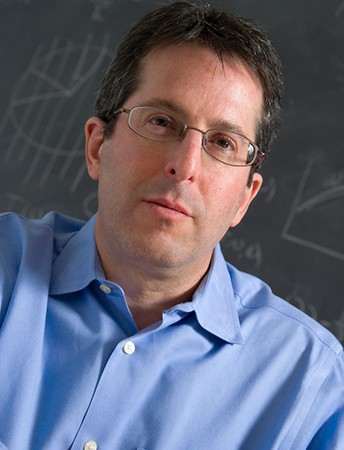Johns Hopkins University's Marc Kamionkowski is a winner of the 2015 Dannie Heineman Prize for Astrophysics, one of the top prizes in the field, the American Astronomical Society and the American Institute of Physics have announced.

The honor, which is awarded annually to outstanding midcareer scientists, carries a cash prize of $10,000 that will be split between Kamionkowski and his co-recipient, David Spergel of Princeton University.
The two researchers are receiving the prize for "their outstanding contributions to the investigation of the fluctuations of the cosmic microwave background, which have led to major breakthroughs in our understanding of the universe," according to the selection committee.
Kamionkowski, a professor in the Krieger School's Department of Physics and Astronomy, is a theoretical physicist who specializes in cosmology and particle physics. In this role, he studies data collected from telescopes and other instruments to suggest a history of the universe that conforms to the laws of physics. His work has often set the stage for successful experimental research conducted by other scientists.
"Marc Kamionkowski's groundbreaking theoretical work on cosmic background radiation has helped drive experimental progress in the field, work that has forever changed how we view the universe," says Fred Dylla, AIP executive director and CEO.
"Marc and David have taught us how to read the subtle bumps and swirls in our exquisite image of the early universe to reveal what happened in the moments of creation," says David J. Helfand, who is president of Quest University Canada and a past president of AAS.
After learning he would receive the Heineman Prize, Kamionkowski said, "It's a great honor for me. If I look at the list of prior winners, lots of astrophysicists whose work I have admired over the years are there. It's also an honor to share it with David Spergel."
Kamionkowski received his PhD from the University of Chicago in 1991 and did his postdoctoral work at the Institute for Advanced Study in Princeton, New Jersey. He then worked as an assistant professor at Columbia University before moving to Caltech in 1999. In 2011, he joined the faculty at Johns Hopkins. He has received numerous awards for his work, including the E.O. Lawrence Award for Physics in 2006, and he was named a Simons Foundation Investigator in 2014.
Kamionkowski began his work on cosmic background radiation—leftover thermal energy from the Big Bang—in the 1990s, when NASA's Cosmic Background Explorer was beginning to announce results. "It seemed like a promising area for investigation," he says. He co-wrote with Spergel several papers proposing a way to determine the spatial geometry of the universe, using temperature maps of the cosmic microwave background. "I think that our work helped provide the motivation for these experiments," he says. "By the beginning of the next decade, we were already starting to see measurements like those we had envisioned."
Later, Kamionkowski studied the polarization of the cosmic microwave background, again spurring experimentalists to measure this phenomenon. His work has advanced the field of precision cosmology, which in recent years has provided data on the age, shape, and composition of the universe.
"One of the goals of my research," he says, "has been to think of ways we can use cosmic microwave background and other cosmological measurements to learn about the very early universe or physical phenomena that might occur in a later universe."
The Heineman Prize is named for Dannie N. Heineman, an engineer, business executive, and philanthropic sponsor of the sciences. It was established in 1979 by the Heineman Foundation for Research, Education, Charitable and Scientific Purposes. Kamionkowski is the third consecutive Heineman Prize winner connected to Johns Hopkins. The 2013 winner, Rachel Somerville, held joint appointments at Johns Hopkins and the Space Telescope Science Institute before joining Rutgers in 2011, and Piero Madau, the 2014 recipient who is now at UC Santa Cruz, held appointments at Johns Hopkins and STScI from 1989 to 1999. Kamionkowski is the first Johns Hopkins professor to receive the Heineman Prize since 1981, when the honor went to Riccardo Giacconi, now a University Professor at Johns Hopkins and a Nobel laureate.







